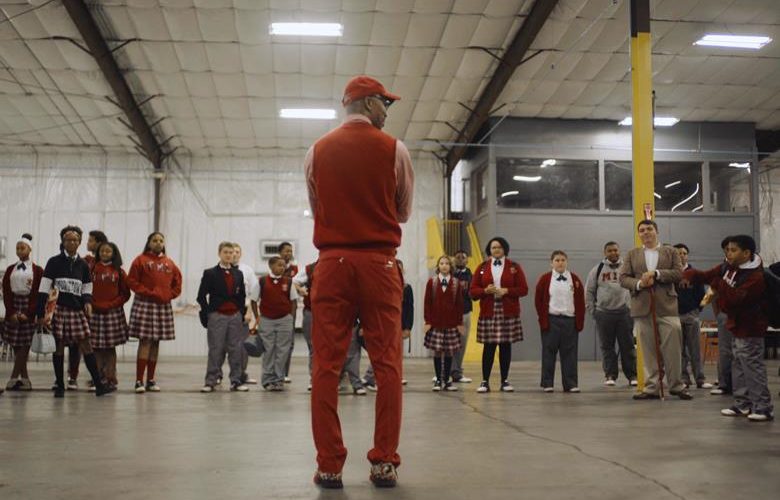Accepted (Chen, 2021)
It is never a bad time to remind thoughtful viewers that pressures on young people to thrive academically are as high and as potentially traumatizing as pressures to succeed artistically or athletically. Given that the Full Frame Documentary Film Festival usually takes place in early April, around the time many high school students are receiving notifications about their applications to colleges or universities, Accepted feels like a documentary that belongs at Full Frame. It doesn’t hurt either that Duke University is a sponsor. While not an Ivy League university, it does have the reputation of being elite.
The film starts out as a warm and fuzzy profile of TM Landry, a prep school in Louisiana that gains media attention through viral videos of its students being accepted into elite colleges and universities. The early scenes take us inside the day-to-day experiences at the school, which is run by one of those administrators that is part Tony Robbins, part drill instructor, and part benevolent grandfather. He helps students (via phone) with math homework at 11:00 p.m. and tells a group of teenagers that a third of them will be dead before they are twenty-one.
Honestly, there is enough in these early scenes to make a thoughtful documentary if one were to ask questions about what is and isn’t acceptable behavior in the face of long educational odds. But the New York Times gets there first, running an expose of the school and documenting at least one police report claiming abuse of the students. The documentary tries hard to stay neutral and observant, but as the school administration closes ranks and the filmmakers presumably have less accessive the focus suddenly shifts to the students themselves. They are given the near-impossible task of making sense of the accusations for the film rather than being part of the film’s own judgments about what the filmmakers were there to document. Not surprisingly, some leave the school, and others stick with it.
It wasn’t clear to me whether the film really tried to get at the truth behind the accusations and couldn’t or was afraid to look too deeply in case its conclusions put the project at risk. In one late scene, a student claims that a scene from earlier in the movie (where she called the administrator for homework help) was staged. How much of what we were shown in the first half was real? When the documentary shows clips of Steve Harvey and Ellen DeGeneres buying and propagating the popular narrative about the school, it seems willing to speculate in a broad way about the cultural pressures to succeed but not to interrogate itself and its part in it. Were the filmmakers fooled? If so, why? In one scene a media member at a press conference chides an “investigator” for not getting a copy of the police report for the key incident, stating that the press was able to obtain it by filing a public records request. The implication is that the investigators don’t know because they don’t want to know — a point that seems lost on the documentary. It briefly shows what appears to be a page of the police report to show that they got it but there doesn’t appear to be any efforts to investigate the incidents or take a side. It’s content with a pox-on-everyone-but-the-kids approach that allows them to keep filming.
Usually, I like documentaries that start out about one thing and morph into something else. They are a reminder of the unpredictability of life, and I respect the daring it must take to turn on a camera before the story is fully written. But that courage also calls for a willingness to follow the story wherever it leads, not to abandon it for a safer sliver of a broader narrative that is easier to film and may be more popular. These kids are terrific, thoughtful, and interesting. I would have been happy to have a documentary just about them, whether it be modeled after 7 Up or Boys State or just took some new form. But it’s as if the film only realizes that the kids are where the real story lies at the eleventh hour.

